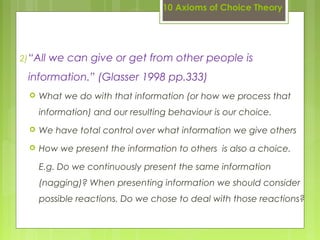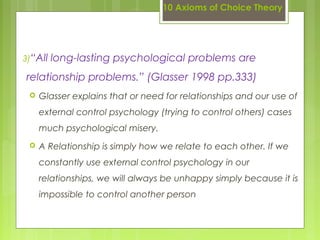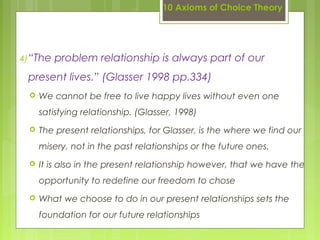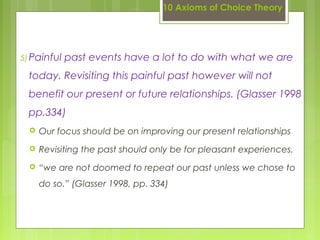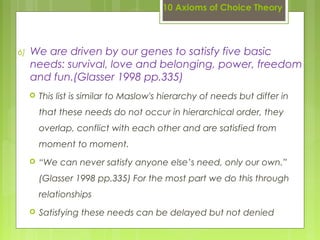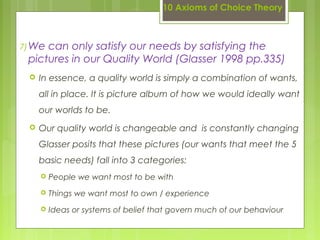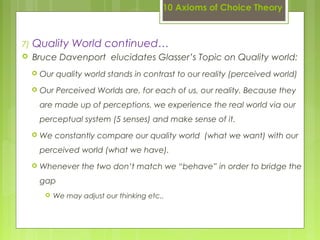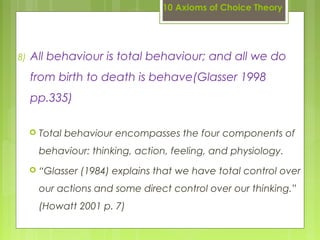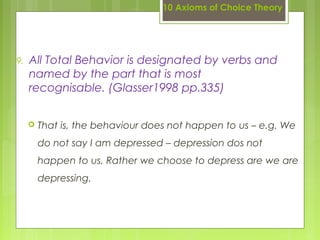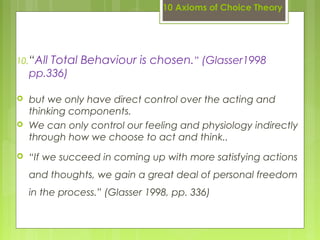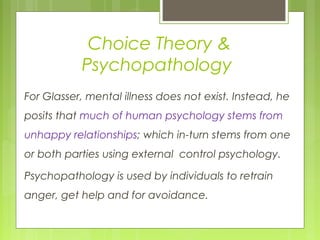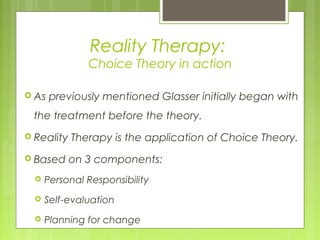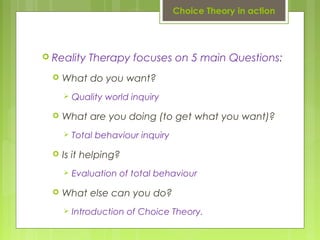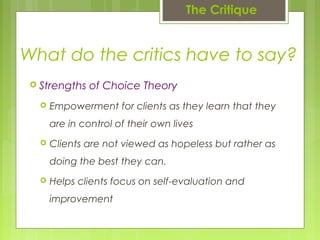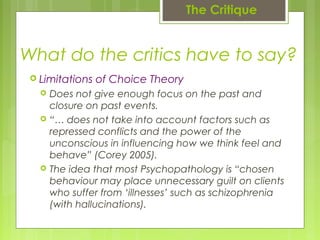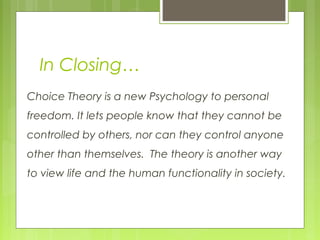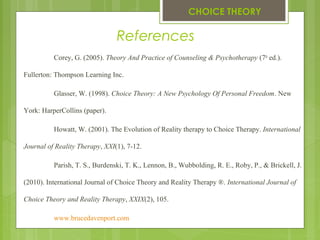Choice Theory is a psychology developed by William Glasser that focuses on personal freedom and responsibility. It posits that we have control over our own behaviors and cannot be controlled by others, though we can indirectly control our feelings and physiology through our thoughts and actions. The theory explains personality through 10 axioms, including that we are driven by 5 basic needs and behave to satisfy pictures in our "Quality World." Reality Therapy applies Choice Theory in counseling by having clients evaluate their behaviors and develop new plans to get what they want. While empowering for clients, some critics argue Choice Theory does not adequately address unconscious influences and may blame clients for mental illnesses outside their control.
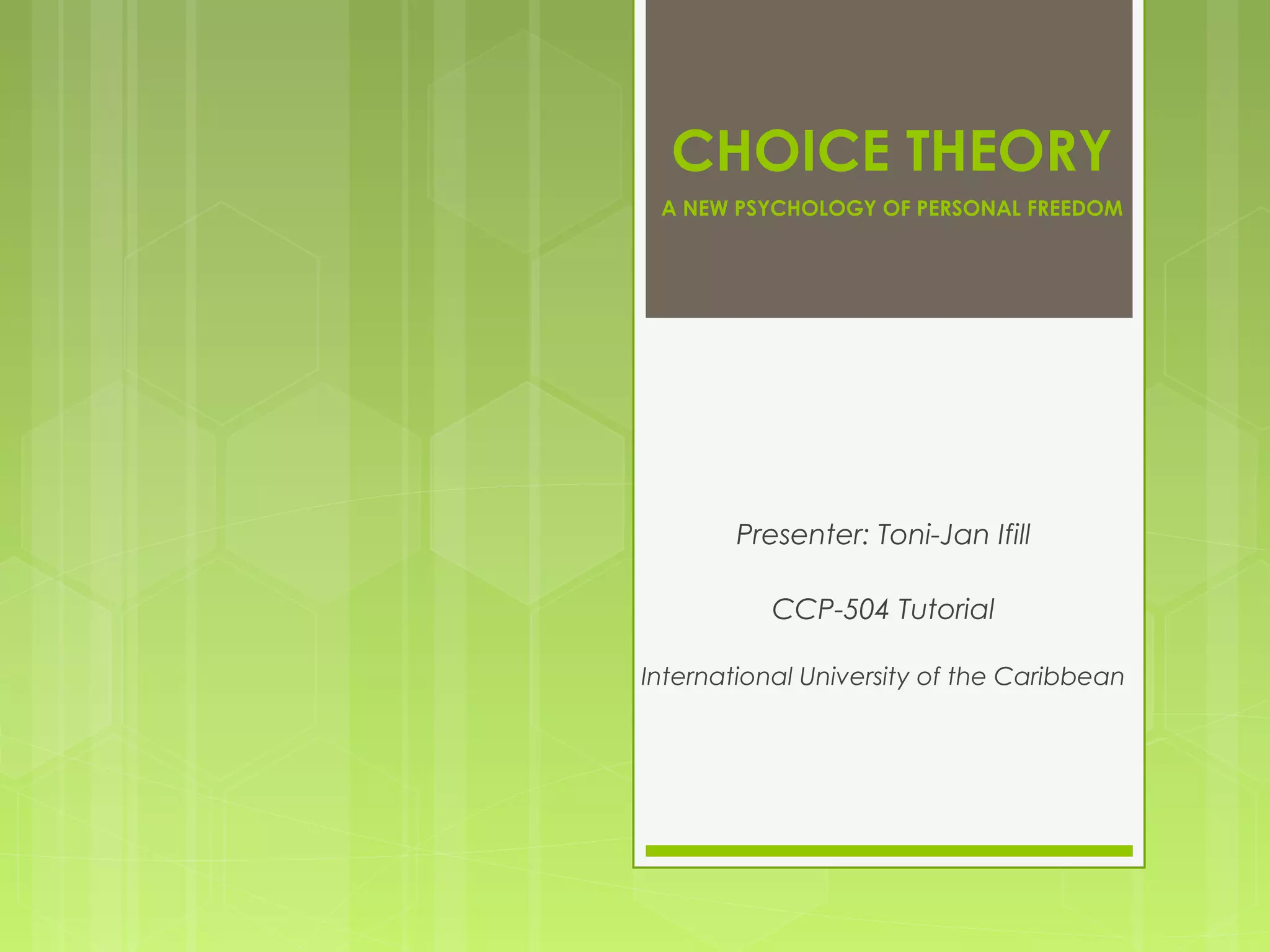
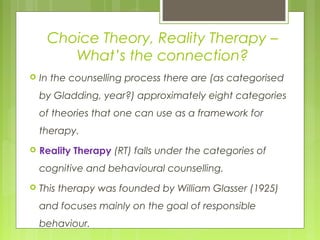
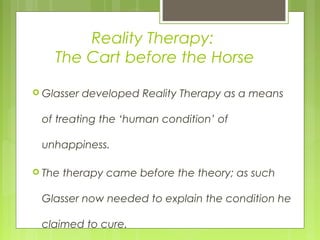
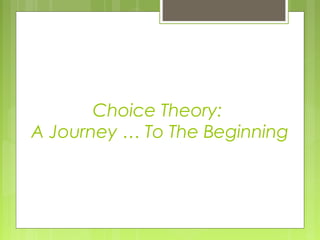
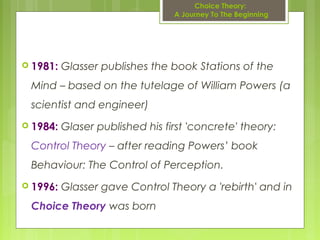
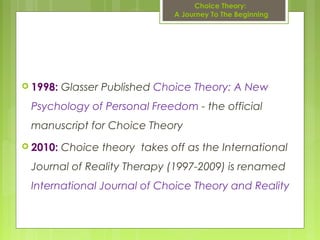
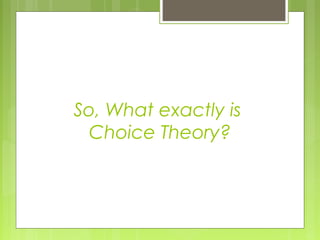
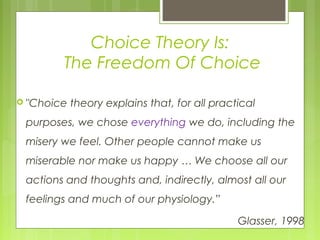
![Choice Theory Is:
Effective/ Efficient Control
“… We [sic] are in much more control of our lives
than we realise. Unfortunately, much of that control
is not effective.” (Glasser 1998 pp. 4)
“The real question is, . . . are we in “efficient control"
of our lives, or are we in “inefficient control” of our
lives?” (Parish, 2010, pp.10)](https://image.slidesharecdn.com/choicetheory-160623052418/85/Choice-theory-9-320.jpg)
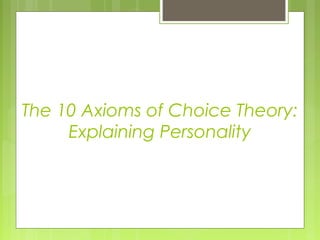
![10 Axioms of Choice Theory
1) “The only person whose behaviour [sic]we can
control is our own.” (Glasser 1998 pp.332)
Glasser posits that once we realise that we chose our own
behaviour and that other people cannot control us; we
also realise that we, in turn, cannot control others.
No one can make us do or feel anything. We chose to do
and feel, we choose to give up power and sacrifice the
freedom of choice.
Likewise we can chose to take hold of and redefine our
personal freedom](https://image.slidesharecdn.com/choicetheory-160623052418/85/Choice-theory-11-320.jpg)
